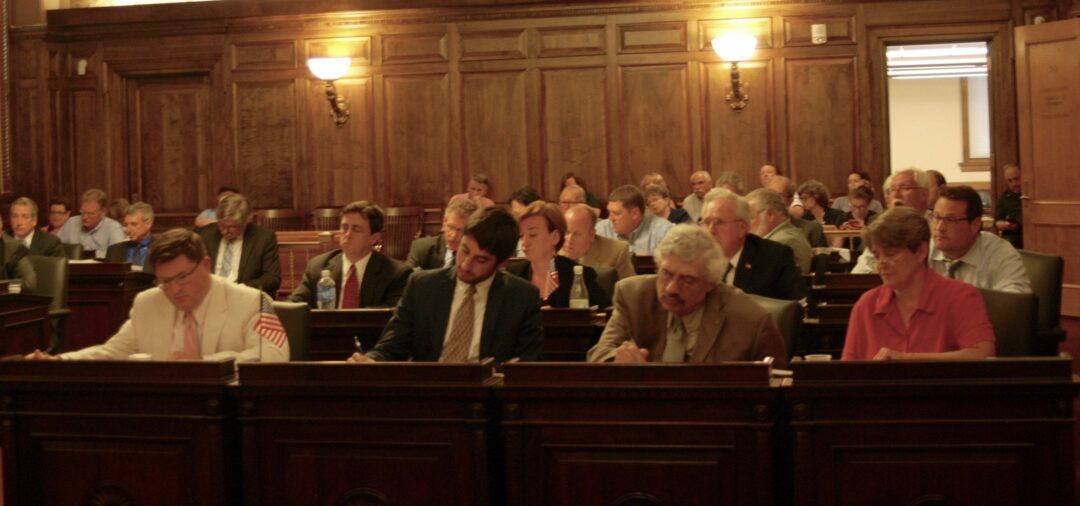BETHLEHEM — The Albany County Legislature narrowly passed Local Law B concerning Bethlehem’s Conservation Easement Exemption, allowing Bethlehem residents with more than five acres to reduce their county property taxes by as much as 90 percent as long as they agree not to develop their properties for an agreed-upon amount of time.
“I’m very, very happy with the passage of Local Law B by the Albany County Legislature,” said Bethlehem Town Supervisor John Clarkson. “It took several years, but was well worth the effort.”
The law was passed earlier this month by the Legislature.
Clarkson pointed out that Bethlehem is one of only four towns in the state to be authorized by the Legislature to offer the exemption, which already applied to Bethlehem town, fire district and Bethlehem Central School

District property taxes since 2014. Both of the other school districts within the town, Guilderland and Ravena-Coeymans-Selkirk, have the option to approve the exemption as well.
“That will make it a much stronger incentive for conservation of open space,” he said, noting the development pressure on many suburban towns. “We hope and expect it to spur more interest among landowners willing to forgo development in exchange for a property tax reduction. It’s really a win for the region, because everyone benefits from open space preservation.”
Under the exemption program, landowners wishing to preserve their undeveloped lands can apply to the town’s Conservation Easement Review Board. To be approved, the land parcel must meet certain criteria and the owner must agree to certain conditions, as outlined in the Bethlehem Conservation Easement Agreement Exemption Information Booklet, found on the town’s website at the bottom of the CERB page.
If approved, the Town Board then votes on whether to grant the exemption. Property owners with five or more acres of undeveloped land (neighboring landowners may join their lands to reach the minimum acreage) who commit to conserving their land as open space for a minimum of 15 years can receive a partial exemption depending on the length of the commitment. A 15-year commitment qualifies for a 50 percent exemption on taxes, a 30-year commitment for 75 percent, and a perpetual easement would receive a 90 percent property tax exemption.
After Legislator Paul Miller (D-32), of Albany, argued against the legislation on July 10, Legislators Bill Reinhardt (D-33) and Joanne Cunningham (D-34), both from Bethlehem and sponsors of the bill, rose in its defense. Pointing out that Miller was erroneously conflating the easement program with the recent controversial issues of property value recollection and the proposed conservation preservation fund, they also argued that the impact on taxpayers has not proven to be significant. Legislators Gary Domalewicz (D-10) and Paul Burgdorf (R-23) also spoke in favor of the exemption.
The law passed by a mere two votes, 18-20, followed by a round of applause in the courtroom.
“I should note,” said Clarkson later, “that our conservation easement exemption is but one tool to help the town conserve open space.” Other tools, he said, include: planning and zoning, as in conservation subdivisions; the state agricultural and forestry exemption programs; preservation through private actions, including those funded by land conservancies and nonprofits; and more.
He went on to explain that the establishment of a conservation preservation fund by the town, which would require and has not yet received state approval, would not necessarily result in new taxes, even though the legislation would allow for that possibility. Of the 36 towns that have been approved for the program, only seven have implemented taxes to generate preservation funds, and none of those have levied the full two percent allowed. In each case, the tax required a town-wide vote.
A real estate lobby has launched a campaign against the law, however, claiming that the potential new tax, which would be levied against property purchases, would make participating towns less attractive to potential investors, and it failed to make it to the floor in the Senate during the last legislative session after passing in the Assembly.
More information on existing methods and on Bethlehem’s development of a formal open space plan are available on the town website’s Open Space Planning page.



